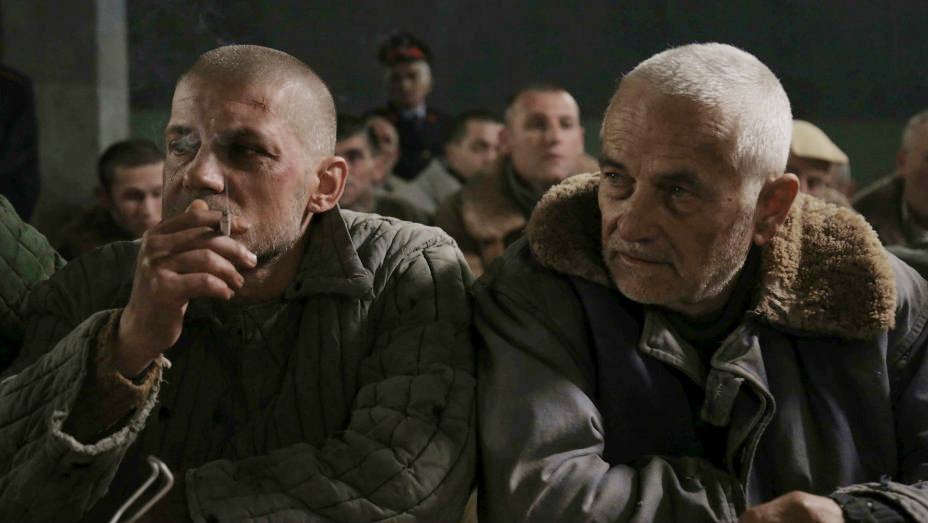
- Golden Globe Awards
The Delegation (Albania, France, Greece, Kosovo)
Autumn 1990. A group of Western diplomats arrives in Albania to investigate human rights abuses by the communist regime still in power. Leo, a professor and political dissident prisoner being kept in a prison in a remote area for 16 years, is secretly transferred overnight, without knowing where or why, in order to meet the head of the European delegation. Leo is expected to confirm that there is no violation of human rights in the country. During the trip he gets acquainted with his two guards, officials devoted to the Albanian Communist Party. But as soon as he finds out the agenda of the guards who escorted him, he decides not to play their game. The car transporting him breaks down in the heart of the mountains and suddenly everything collapses.Directed by Bujar Alimani (Patos, Albania, 1969), the film paints the portrait of the last days of the communist regime in Albania, when the country was experiencing a historical turning point, leaving behind the long-running communist dictatorship to enter into the world of democracies. The story is set at a time when similar events were taking place in Romania. Albania, a country with a society and a political system in which things obviously weren’t working anymore (if they ever worked) was the last domino in the fall of Eastern European communism, “We had the most repressive regime among communist countries. In those years many foreign delegations came to Albania to verify its progress towards democracy. The government tried to negotiate and join the democratic system,” recalls the director.This is not the first time Alimani set a film in a prison and looked into the life of inmates. His first feature film Amnesty (2011) was a love story set in a prison. “In this case, instead of exploring the political and social realities of Albania through the medium of an intimate story, with The Delegation I wanted to tackle the political history of the country, casting it as the protagonist of the movie, while the central dramatic elements are still carried by the intricacies of human behavior,” explains Alimani, who claims that although the film was enthusiastically celebrated in its country, after winning the Best Film Award at the Warsaw Film Festival, there has been no debate about its narrative differently from what happened in Poland. “Public opinion in Albania is not used to open debates, people are not very responsive.”